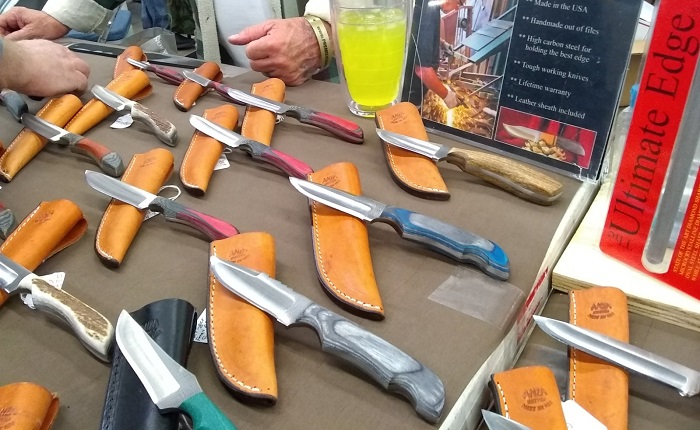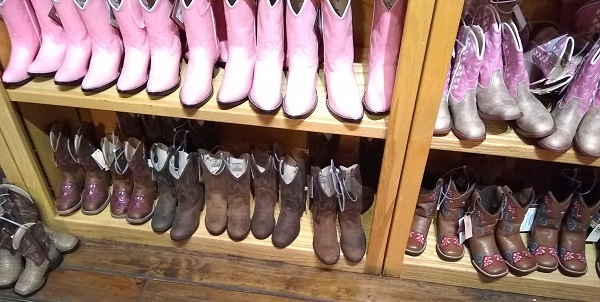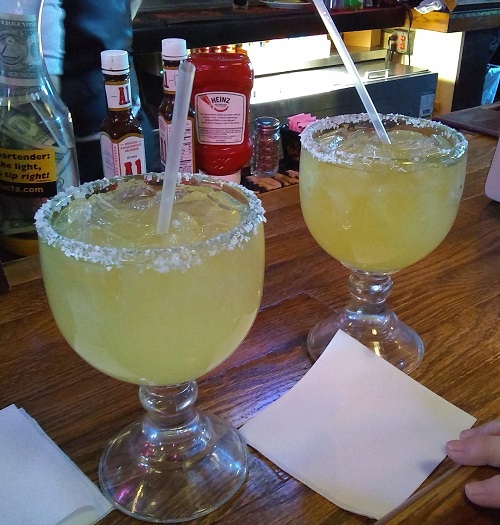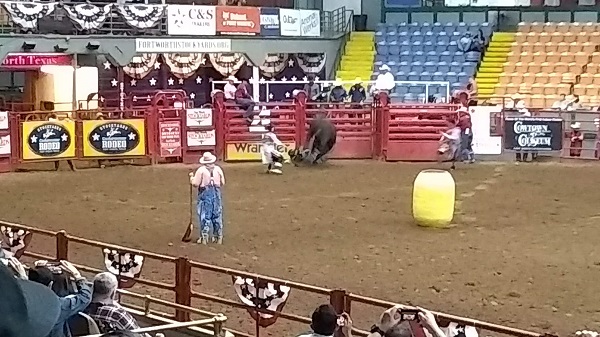Last Saturday I took New Wife out for a Full Texas Day (I know, I know: never go Full Texas).
Part One was the Fort Worth Gun Show (that was for me, of course, although she found several Girly-things to buy there, and did). Blessedly, there was more on display than the usual AR-15/Glock/Tacticool stuff (although there was plenty of that too):

… although that mythical unicorn (mint condition Colt Python for under $1,000) was nowhere to be found, of course. There was a S&W Mod 65-3 for sale, but it looked like it had been towed behind a Ford F-150 for a mile or two, and they wanted $700 for it, so: pass. However, there was a vendor selling from a huge selection of Anza knives, and somehow I managed not to buy a single one (although I could have bought six or seven, easily).

Good grief, they’re lovely knives. I’m rapidly starting to think of Anza knives as I do .22 rifles — i.e. every home should have at least one — and the next time I go to the Ft. Worth gun show, I’m going to buy another one, because… I shouldn’t have to explain myself on this one, should I? Here’s one that caught my eye, just because of the shape:

…but honestly, I could also see myself getting any one of these little beauties too.
We were planning on getting a late lunch of BBQ in downtown Ft. Worth (Part Two), but as it happened, there was a vendor at the show from Robinson’s BBQ (“since 1947”) so that was the brisket taken care of — and it was excellent.
We did take a little drive trip through Ft. Worth, and would have stopped to listen to the orchestra playing in Sundance Square, but parking in downtown is crappy, so we didn’t. Instead, we went out to The Stockyards for a little shopping and entertainment.

The shopping at the various Western wear stores (Part Three) was patchy — some expensive stuff there, Bubba — but I did manage to snag a decent summer-weight vest which doesn’t look like a mil-surp, fishing- or photographer’s vest for a decent price. New Wife, not so lucky. (She steadfastly refused to let me buy her some cowboy boots, but hey: she’s been in Texas less than five months, and I only got a pair of cowboy boots after over fifteen years here, so it’s a long-term project.) Also:

Anyway, it was getting late, so we went into Riscky’s for more BBQ and margaritas (Part Four):


Decent ribs, outstanding grilled shrimp (seriously, maybe the best I’ve ever tasted), and Ernesto the barman is brilliant. (I tended bar in my distant yoot, so I know the trade.)
Dinner over, we went to Part Five of the Full Texas Thang:

Oh yeah, baby… rodeo!
Now I have to confess that I’m no expert on rodeo — mostly, I think it’s cheap country entertainment — but you can’t go Full Texas without rodeo, right? So we watched the bull-riding, bronco busting, calf-roping and all that, until the over-loud PA (and screaming commentator) got to my tinnitus and the hissing/whistling sound became unbearable (my ears are still ringing as I write this, the day after).
But New Wife enjoyed the day thoroughly, even the gun show — although she won’t be going to another one anytime soon — and hey… how often do you get to go Full Texas with a newbie?














